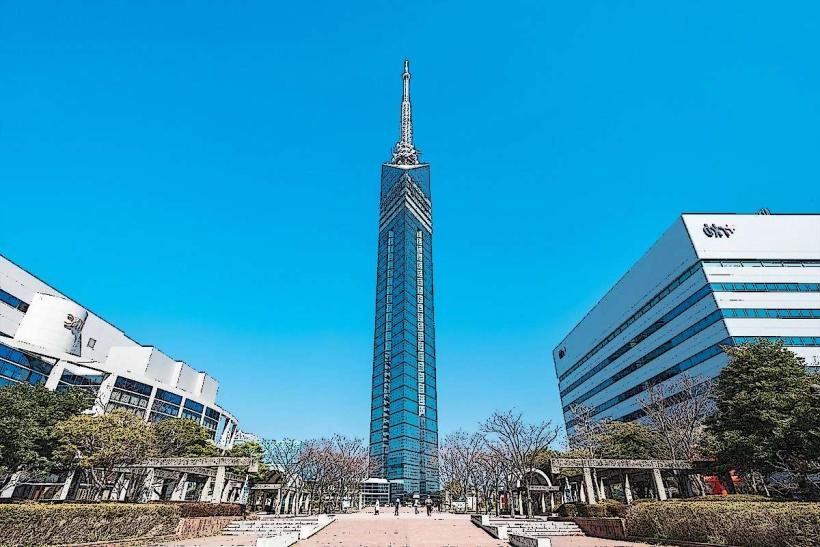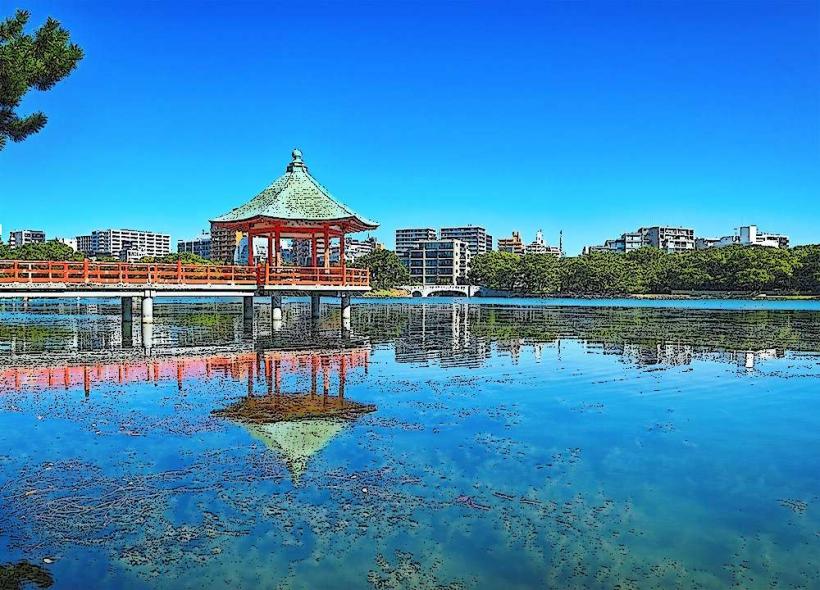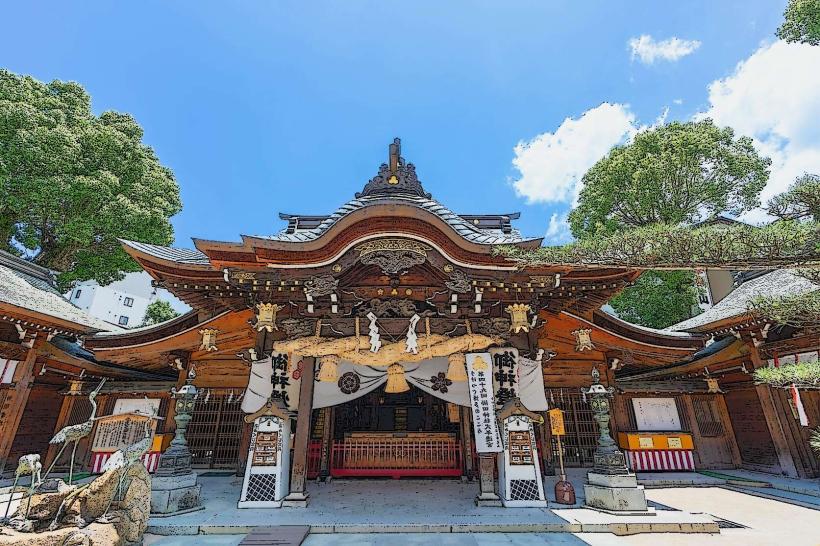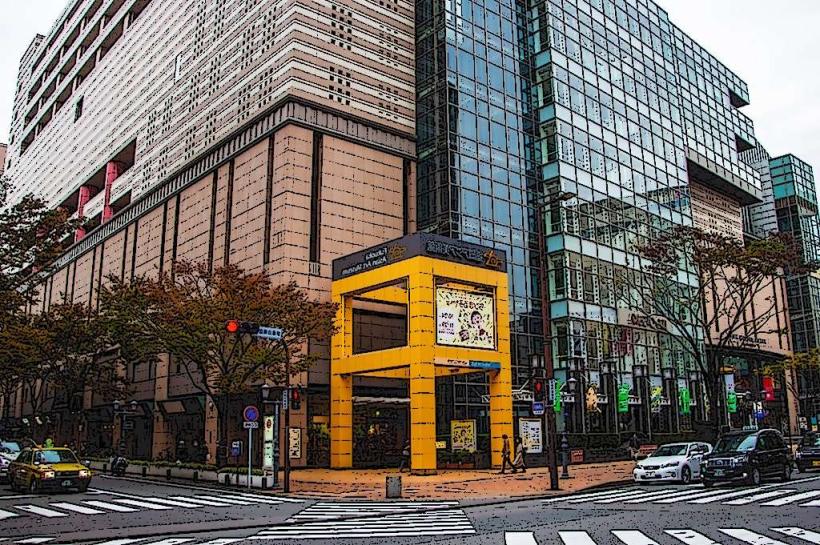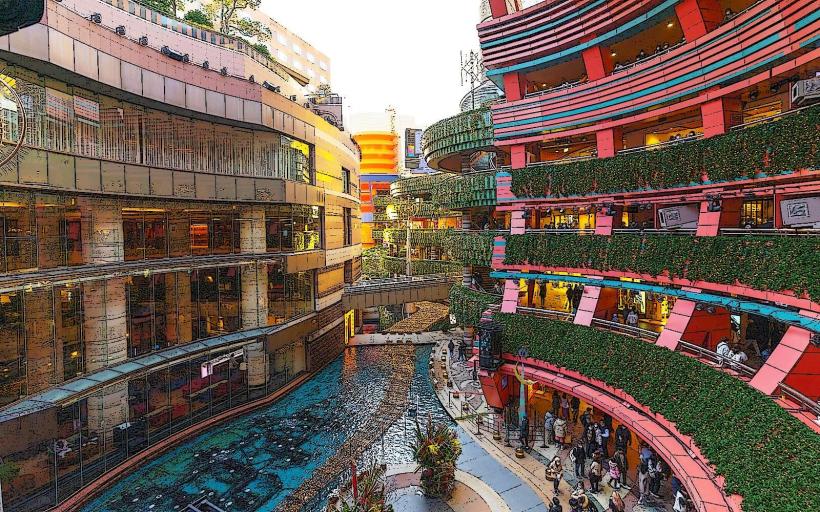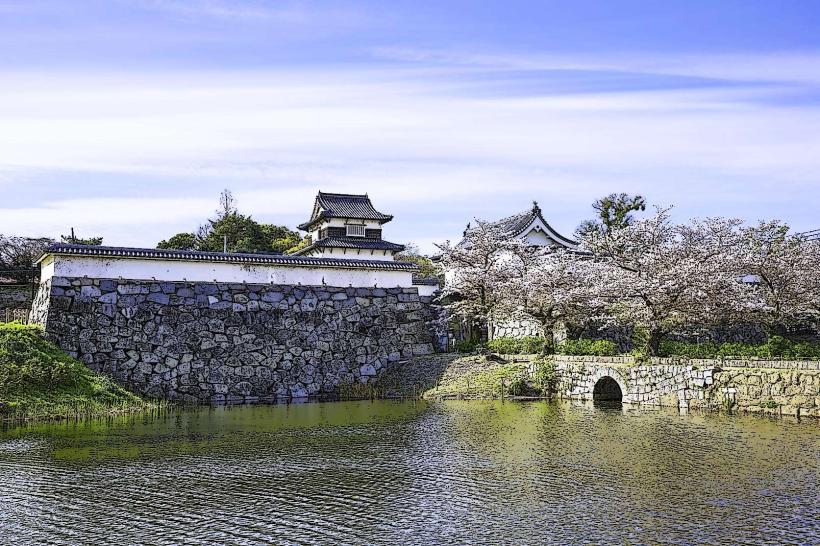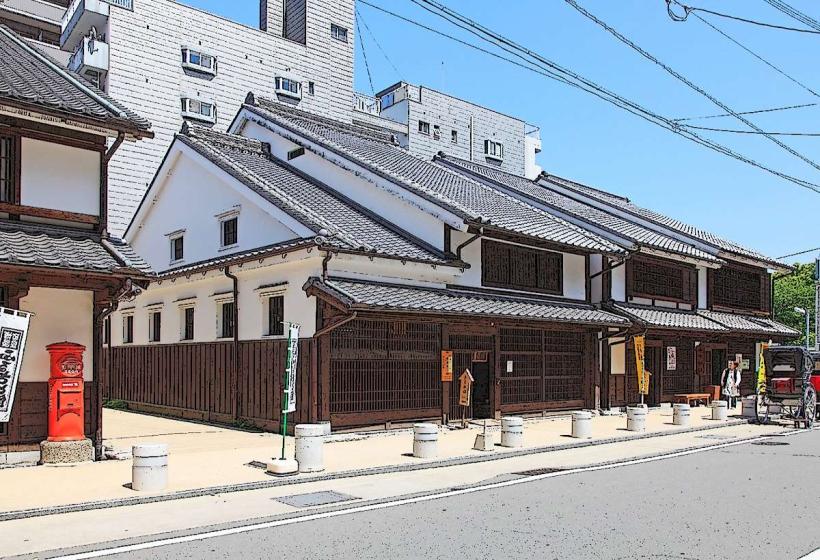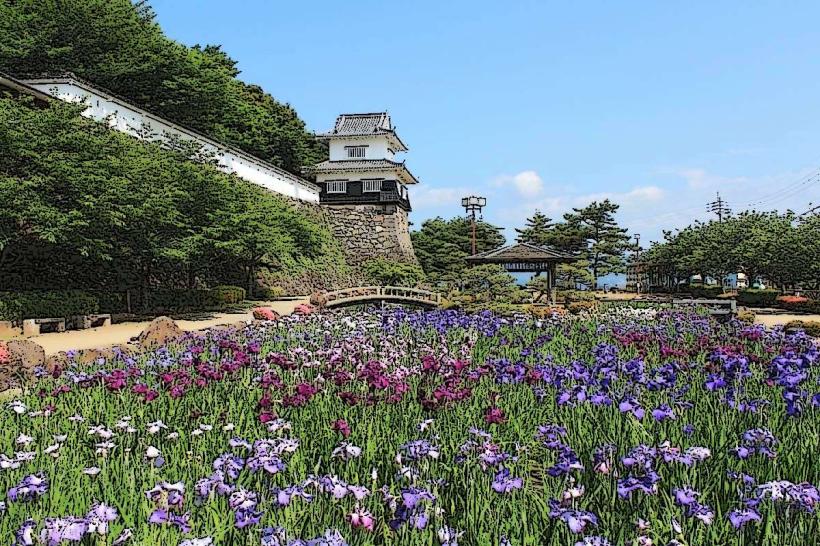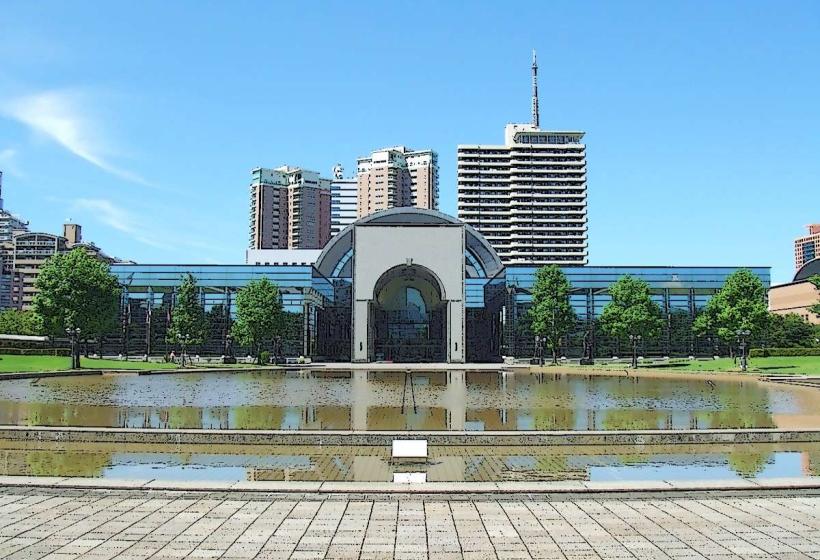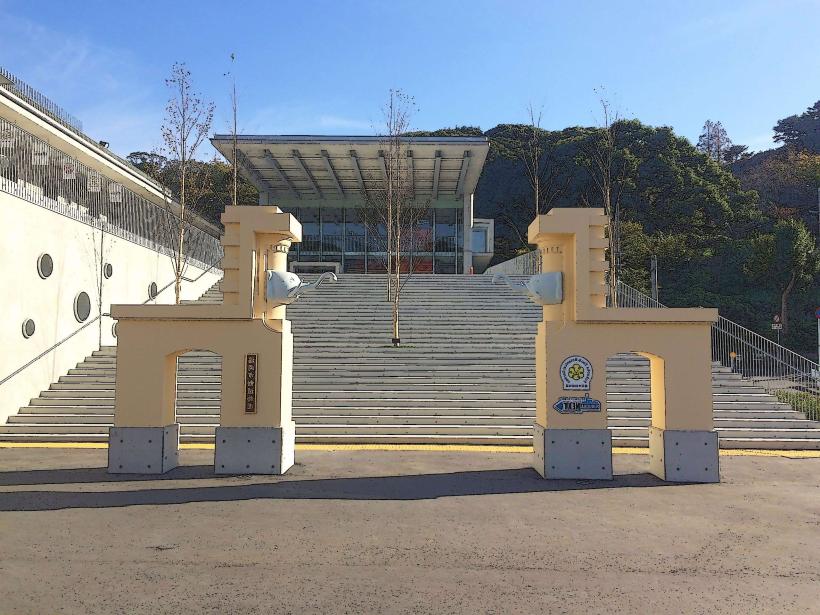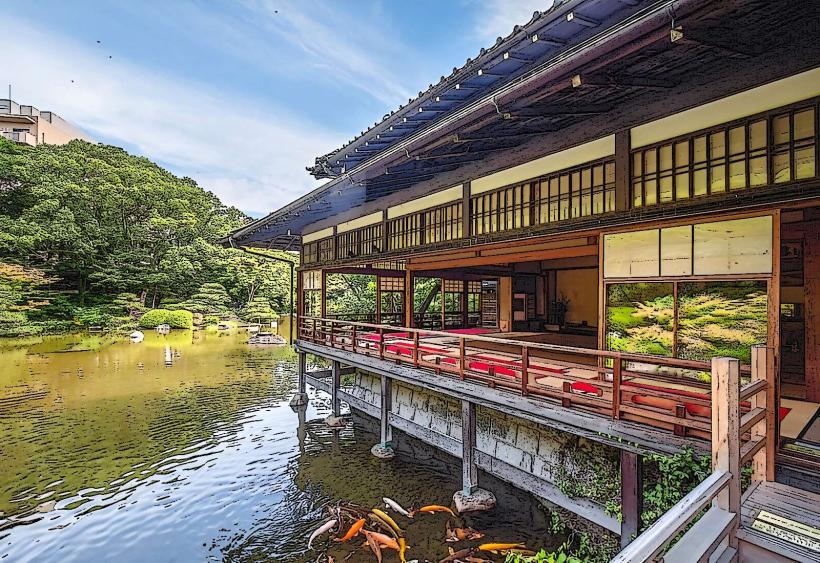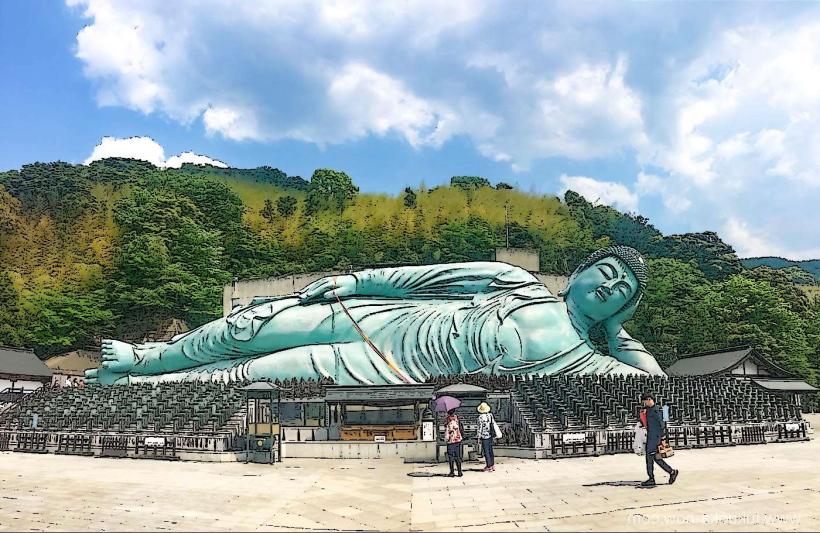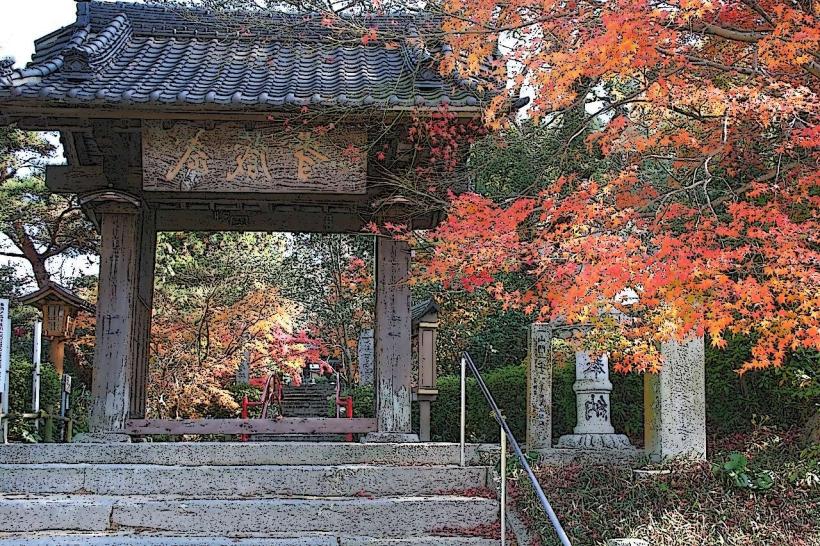Information
Landmark: Dazaifu Tenmangu ShrineCity: Fukuoka
Country: Japan
Continent: Asia
Dazaifu Tenmangu Shrine, Fukuoka, Japan, Asia
Dazaifu Tenmangu Shrine is a Shinto shrine located in Dazaifu, Fukuoka Prefecture, Japan.
It is dedicated to Sugawara no Michizane, the deity of scholarship and learning.
Visual Characteristics
The shrine complex features a main hall constructed with cypress wood, painted in vermilion and white. It is characterized by a distinctive thatched roof and intricate wooden carvings. The grounds include two bridges, the Taiko-bashi (Drum Bridge) and the Shinji-bashi (Sacred Bridge), which are arched and made of wood. The shrine is surrounded by extensive grounds with numerous plum trees, a pond, and stone lanterns.
Location & Access Logistics
Dazaifu Tenmangu Shrine is situated approximately 16 kilometers south of Fukuoka city center. Access is primarily via the Nishitetsu Tenjin Omuta Line from Nishitetsu Fukuoka (Tenjin) Station to Dazaifu Station. The shrine is a 5-minute walk from Dazaifu Station. Limited parking is available at designated lots near the shrine, with fees applicable. Bus services also operate from various points in Fukuoka to Dazaifu.
Historical & Ecological Origin
The shrine was originally built in 905 AD, with its current main hall constructed in 1591 by Tachibana Muneshige. It was established to honor Sugawara no Michizane, a scholar and politician who was exiled to Dazaifu in 901 AD. The grounds are known for their significant population of plum trees, which are culturally important in Japan and are believed to have been planted by Michizane himself.
Key Highlights & Activities
Visitors can walk across the Taiko-bashi and Shinji-bashi bridges. The main hall is accessible for prayer and observation. The shrine grounds contain a museum displaying historical artifacts related to Sugawara no Michizane. Plum blossom viewing is a significant activity during the blooming season. Visitors can purchase omamori (amulets) and write wishes on ema (wooden plaques).
Infrastructure & Amenities
Restrooms are available within the shrine complex. Shaded areas are provided by trees and covered walkways. Cell phone signal (4G/5G) is generally available. Numerous food vendors and small restaurants are located along the approach to the shrine, offering local snacks and meals.
Best Time to Visit
The best time for photography is in the morning or late afternoon when the sunlight creates distinct shadows on the buildings and bridges. The plum blossom season, typically from late January to early March, offers a visually distinct experience. The shrine is open year-round, with fewer crowds on weekdays outside of peak tourist seasons.
Facts & Legends
A notable feature is the "Tobiume" (Flying Plum Tree), a plum tree located to the east of the main hall. Legend states that this tree flew from Kyoto to Dazaifu after Michizane's exile, drawn by its affection for him. The shrine is particularly popular with students seeking academic success, and the grounds are home to approximately 6,000 plum trees, with a festival held annually to celebrate their blooming.
Nearby Landmarks
- Kyushu National Museum: 0.3km West
- Komyozenji Temple: 0.4km South
- Dazaifu Amusement Park: 1.2km Southwest
- Kōmyōzen-ji Temple: 0.4km South

